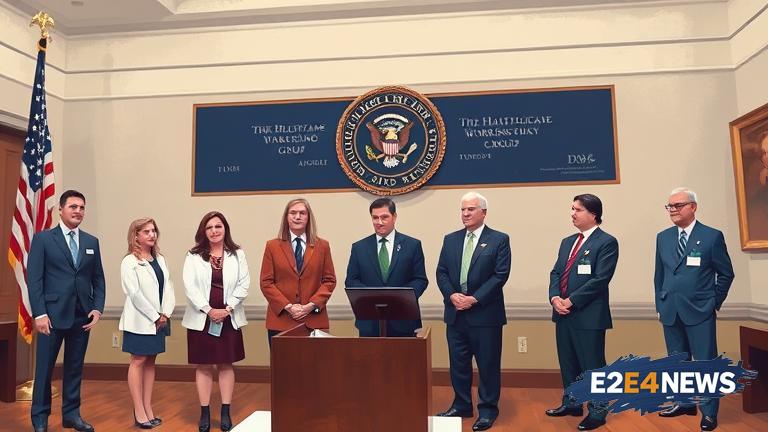The US Department of Justice (DOJ) has announced the establishment of a new healthcare working group, dedicated to combating healthcare fraud and abuse. This initiative is part of the DOJ’s ongoing efforts to protect patients, taxpayers, and the integrity of the healthcare system. The working group will bring together experts from various government agencies, including the Federal Bureau of Investigation (FBI), the Department of Health and Human Services (HHS), and the Centers for Medicare and Medicaid Services (CMS). The group’s primary objective is to identify and prosecute individuals and organizations engaging in fraudulent activities, such as billing for unnecessary medical procedures, kickbacks, and false claims. The working group will also focus on preventing and detecting healthcare fraud, through the use of advanced data analytics and machine learning techniques. Furthermore, the group will work closely with state and local law enforcement agencies to share intelligence and best practices in combating healthcare fraud. The creation of this working group demonstrates the DOJ’s commitment to addressing the growing problem of healthcare fraud, which is estimated to cost the US healthcare system tens of billions of dollars each year. The working group will also prioritize the protection of vulnerable populations, such as the elderly and those with disabilities, who are often targeted by fraudulent healthcare schemes. In addition to its enforcement efforts, the working group will provide guidance and support to healthcare providers and organizations, to help them prevent and detect fraud. The group will also work with private sector partners, including insurance companies and healthcare technology firms, to develop innovative solutions to combat healthcare fraud. The establishment of this working group is a significant step forward in the fight against healthcare fraud, and demonstrates the DOJ’s dedication to protecting the integrity of the US healthcare system. The working group’s efforts will be closely monitored by lawmakers, healthcare industry stakeholders, and patient advocacy groups, who are eager to see tangible results in the fight against healthcare fraud. As the working group begins its work, it will face several challenges, including the complexity of healthcare fraud schemes, the limited resources available to combat these crimes, and the need to balance enforcement efforts with the need to protect legitimate healthcare providers. Despite these challenges, the working group is well-positioned to make a significant impact in the fight against healthcare fraud, and its efforts will be closely watched by stakeholders across the healthcare industry. The working group’s success will depend on its ability to collaborate effectively with other government agencies, private sector partners, and healthcare stakeholders, as well as its ability to adapt to emerging trends and technologies in healthcare fraud. As the US healthcare system continues to evolve, the working group’s efforts will be critical in protecting patients, taxpayers, and the integrity of the system. The working group’s establishment is also a reminder of the importance of vigilance and oversight in the healthcare industry, and the need for ongoing efforts to prevent and detect fraud. In conclusion, the creation of the DOJ’s new healthcare working group is a significant development in the fight against healthcare fraud, and demonstrates the agency’s commitment to protecting the integrity of the US healthcare system. The working group’s efforts will be closely watched by stakeholders across the healthcare industry, and its success will depend on its ability to collaborate effectively with other government agencies, private sector partners, and healthcare stakeholders.





